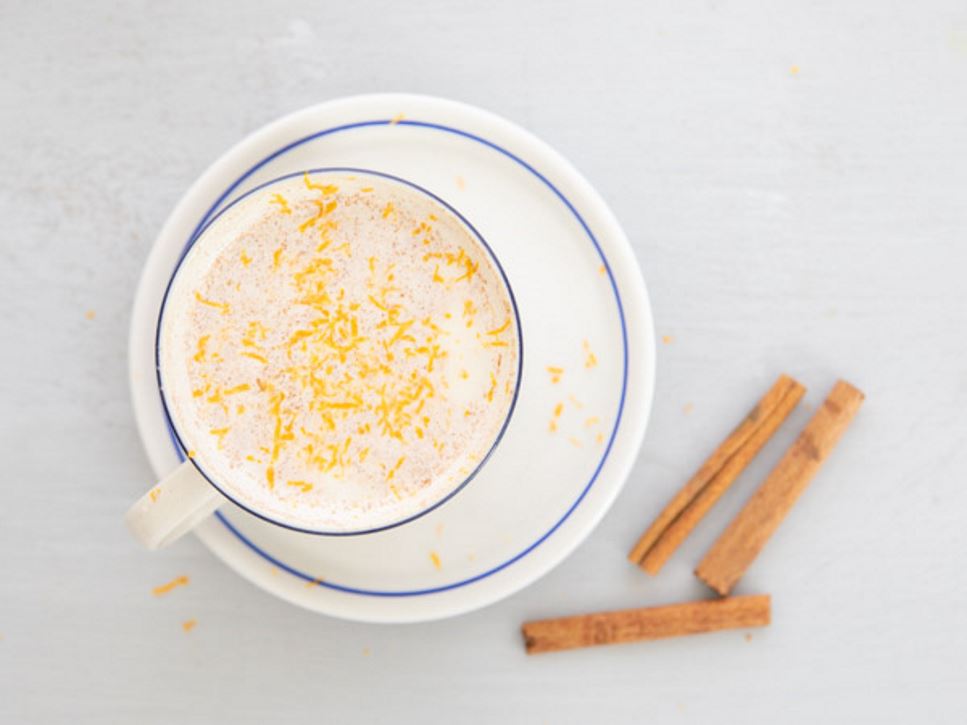
Enjoyed as spiced milk tea in India and Pakistan, chai gets its unique and soothing flavor from black tea leaves steeped with spices and blended with milk and a sweetener. ("To steep" is to soak dry ingredients, such as tea and spices in liquid until the flavor is infused into the liquid.) Cardamom, cinnamon, cloves, ginger and even peppercorns are commonly used, but others, such as allspice, fennel and nutmeg, add variety to chai-making.
Not only enjoyed as an aromatic beverage, chai has health benefits, too — among them, the potential antioxidant benefits of tea and spices, and the calcium, vitamin D, protein and other nutrients from milk.
Ingredients
1 tablespoon grated and peeled fresh ginger root or 1 teaspoon ground ginger
½ teaspoon ground cardamom
⅛ teaspoon ground cloves
⅛ teaspoon black pepper
2½ cups water
2 tea bags (black tea)
1 stick cinnamon
2½ cups low-fat milk
2 tablespoons honey
2 tablespoons orange zest, for garnish (optional)
Directions
Before you begin: Wash your hands.
- Combine the ginger root, cardamom, cloves and black pepper in a small bowl. Set aside.
- Fill a saucepan with water; bring to a full boil. Place the tea bags and cinnamon stick in the water. Stir in the spice mixture. Reduce to simmer.
- Steep for about 5 minutes, or longer for a strong, rich tea flavor.
- Remove the tea bags and cinnamon stick.
- Add the milk and honey. Continue to simmer until the chai is heated through, stirring gently to keep scum from forming on milk.
- Pour the chai into mugs. Sprinkle with orange zest, if desired.
Preparation Notes
- If using loose tea instead of tea bags, use 2 tablespoons loose black tea. Strain to remove tea leaves before serving.
- If the tea bags break open, strain chai before serving.
- Chai also can be served over ice as a cold beverage, or even as the flavor base for a chai smoothie or milk shake.
Nutrition Information
Serves 4
Calories: 110; Calories from fat: 15; Total fat: 1.5g; Saturated fat: 1g; Trans fat: 0g; Cholesterol: 10mg; Sodium: 80mg; Total carbohydrate: 17g; Dietary fiber: 0g; Sugars: 16g; Protein: 6g
Freshly Picked
Find a Nutrition Expert
Looking for credible nutrition information and recommendations? The Academy of Nutrition and Dietetics' network of credentialed food and nutrition practitioners are ready to help!




